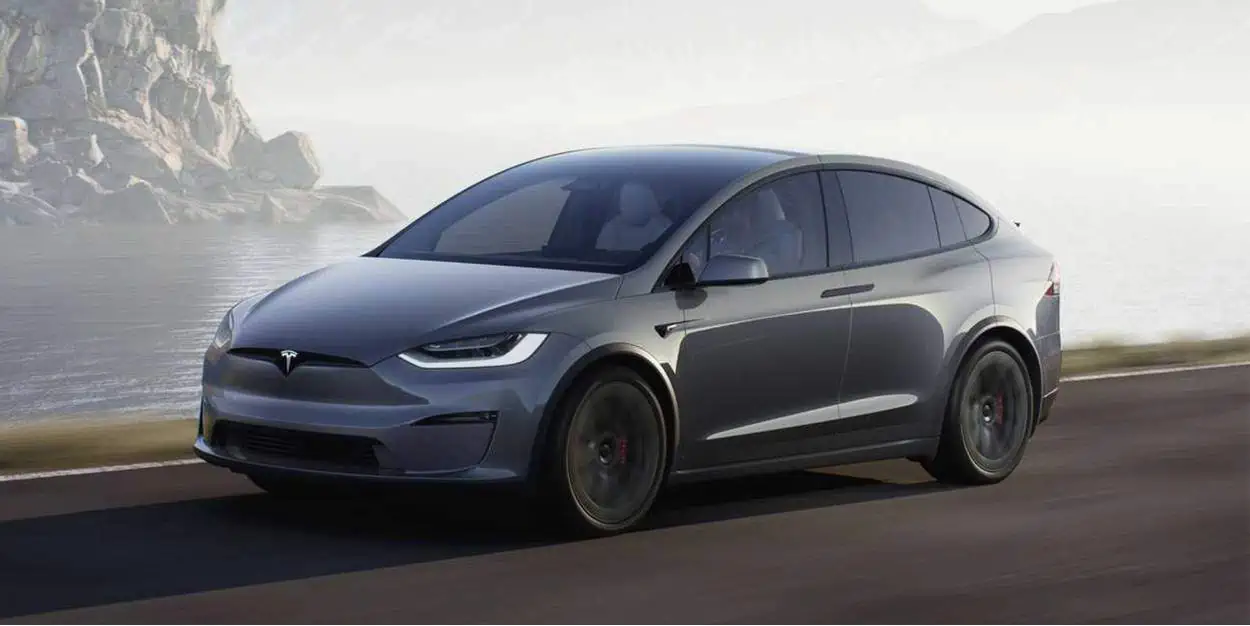Electric vehicle giant Tesla has implemented significant price cuts on its entire portfolio across its key markets since the start of the year. This aggressive pricing strategy resulted in a price war against its global competitors, which the Musk-led company continues to win.
According to Automotive News, Tesla boosted the demand in the US EV industry with its increasing price cuts so far this year.
EV market share growth
New EV registrations in the US surged 67% year-on-year to 655,986 units from January to July.
This notable figure enabled the local EV industry to increase its market share to 7.2% in the first seven months of the year from just 4.9% in 2022.
Meanwhile, new light-vehicle registrations reached approximately 9.1 million in the seven-month period.
As mentioned, Tesla significantly led EV’s market share growth in the country with a 59% market share.
Market share by brand
Tesla’s Jan-July registrations grew 50% YoY to 390,377 units. This result pushed the brand’s market share to account for more than half of the overall auto market – 59%.
In July alone, Tesla registered 60,769 new EVs. This figure demonstrates the brand’s dominance as the combined results of all its competitors were only 48,566 units in the same month.
Chevrolet followed the Musk-led company with sales of 39,647 units. Ford ranked third with 33,955 unit sales.
The top five were completed by Hyundai (28,198) and BMW (23,166).
Below are the complete rankings of top-selling automotive brands in Jan-Jul 2023:
| Rank | Brand | New EV registrations | Share of EV market |
| 1 | Tesla | 390,377 | 59.5% |
| 2 | Chevrolet | 39,647 | 6.0% |
| 3 | Ford | 33,955 | 5.2% |
| 4 | Hyundai | 28,198 | 4.3% |
| 5 | BMW | 23,116 | 3.5% |
| 6 | Mercedes-Benz | 21,160 | 3.2% |
| 7 | Volkswagen | 20,046 | 3.1% |
| 8 | Rivian | 18,359 | 2.8% |
| 9 | Kia | 17,073 | 2.6% |
| 10 | Audi | 12,311 | 1.9% |
| 11 | Nissan | 10,530 | 1.6% |
| 12 | Volvo | 8,796 | 1.3% |
| 13 | Polestar | 5,374 | 0.8% |
| 14 | Toyota | 4,342 | 0.7% |
| 15 | Subaru | 4,201 | 0.6% |
| 16 | Porsche | 3,935 | 0.6% |
| 17 | Cadillac | 3,804 | 0.6% |
| 18 | Lucid | 3,789 | 0.6% |
| 19 | Genesis | 3,102 | 0.5% |
| 20 | Mini | 1,593 | 0.2% |
| 21 | Lexus | 1,547 | 0.2% |
| 22 | GMC | 275 | 0% |
| 23 | VinFast | 170 | 0% |
| 24 | Jaguar | 158 | 0% |
| 25 | Mazda | 91 | 0% |
| 26 | Fisker | 37 | 0% |
EV adoption to continue rising, JD Power says
Tesla started the year with enticing price cuts to attract customers and boost sales. It ultimately prompted other brands to lower their pricing to compete with the American EV giant.
JD Power estimated that the overall electric vehicle market share grew to 8.5% in July due to Tesla’s pricing strategy that compelled EV models to become more affordable.
In its previous index, JD Power compared EVs to traditional gas-powered vehicles with a 100-point scale. It demonstrated Tesla’s significant role in improving the affordability of EV models in the market.
“Affordability remains the highest-scoring factor at 97, driven by aggressive pricing from Tesla. Although the affordability factor is approaching parity, it is skewed by the premium market, driven largely by Tesla’s 63 percent EV market share.”
Elizabeth Krear, JD Power EV Practice VP
See Also:
- Tesla price cuts partly offset by federal tax credits
- Tesla price cuts result in ‘significant cancellations’ for China EV brands
- Tesla price cuts result in ‘significant cancellations’ for China EV brands
- BYD Chairman loses $1.5B in just a day following Tesla’s price cuts
- Tesla implements new price cuts for some Model Y variants in China, breaking its pledge to end the price war
Tesla does not release its global sales per region/country. Therefore, it must be noted that these data from Experian are just estimates. Nonetheless, it was able to show Tesla’s dominance in its home market largely due to its pricing strategy. As CEO Elon Musk previously stated, Tesla is willing to prioritize growth over profit in the short term.






